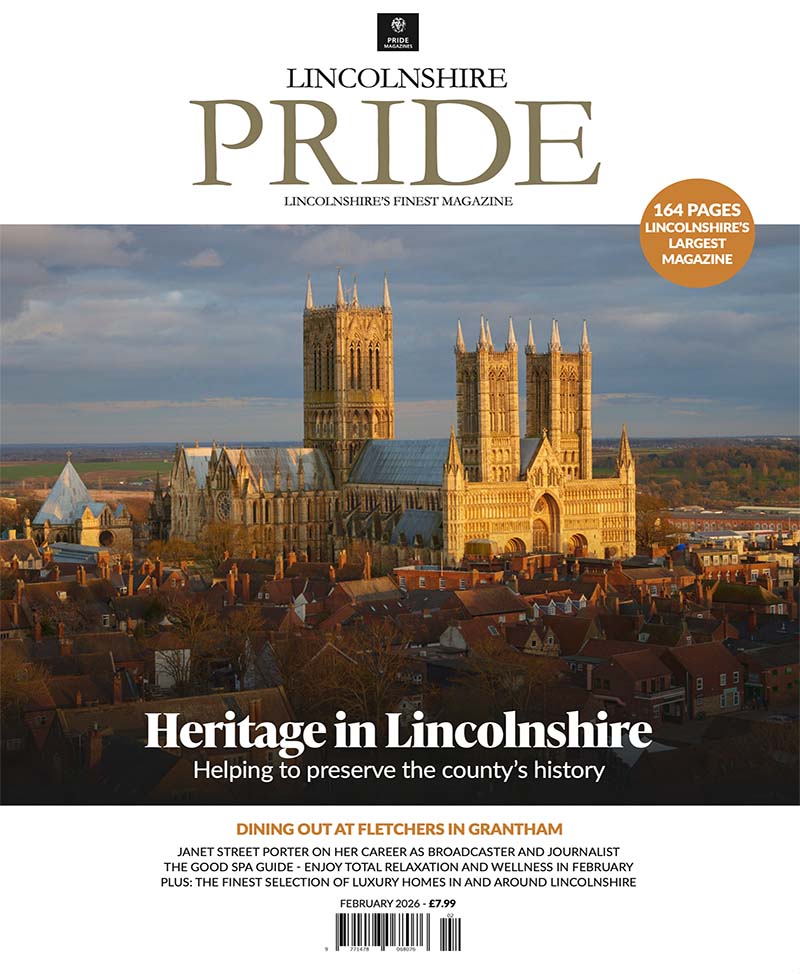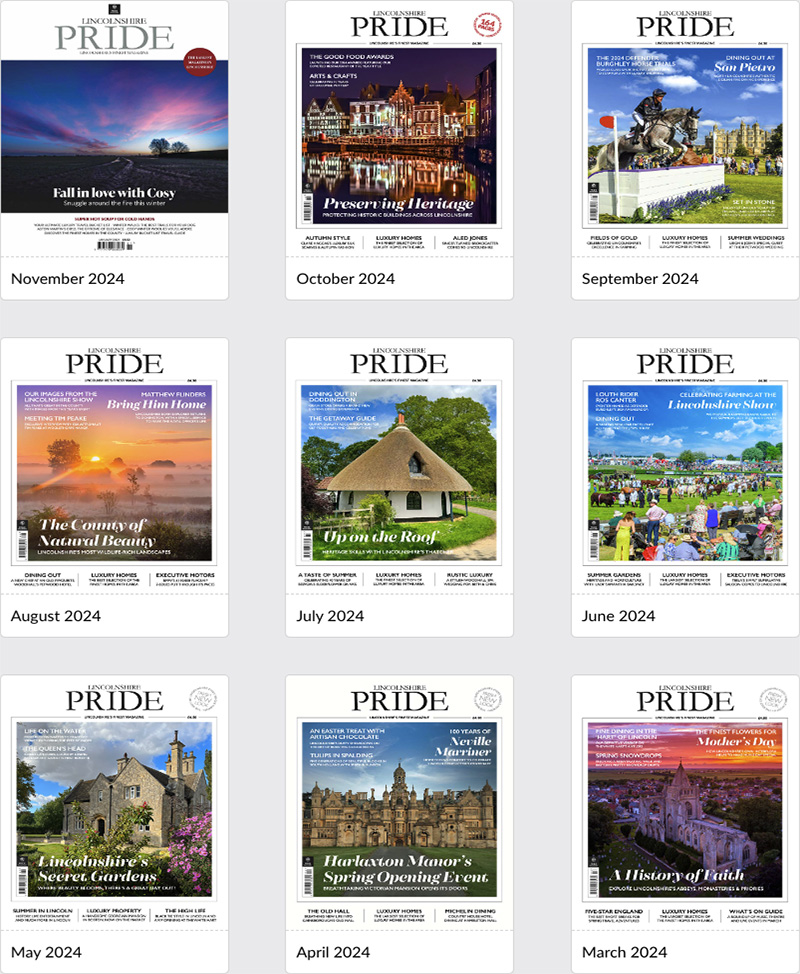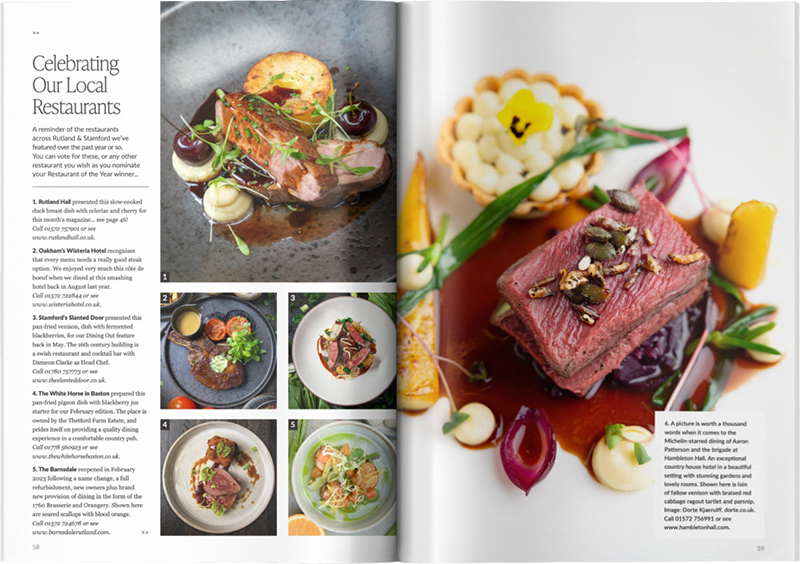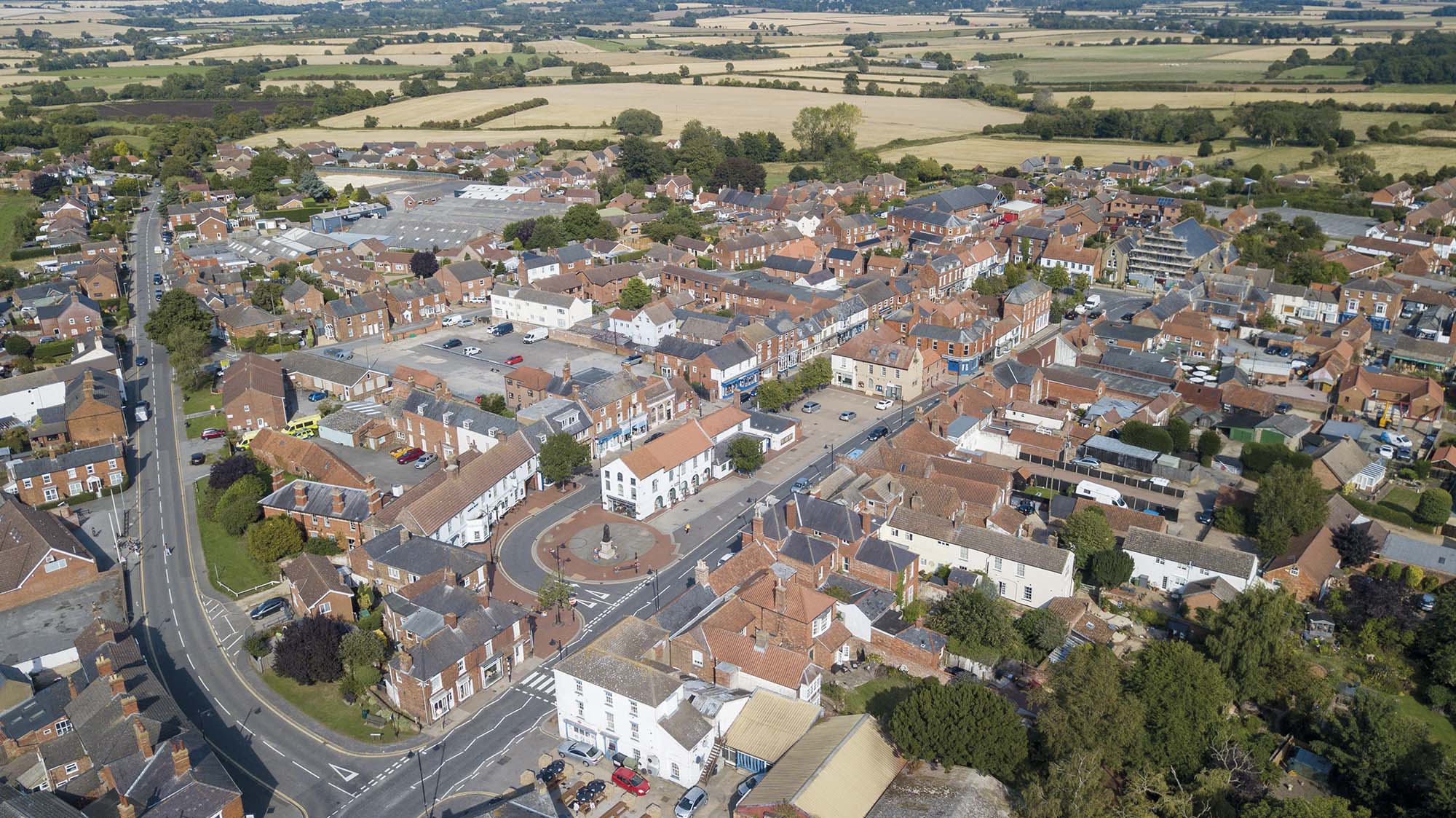
A Celebration of Spilsby
From stately homes haunted by a spirit, to a much friendlier sense of community spirit, Spilsby is perfect for a visit this month and its future is brighter than ever with a restoration of its Sessions House theatre on the cards too, says Mayor Tom Kemp…
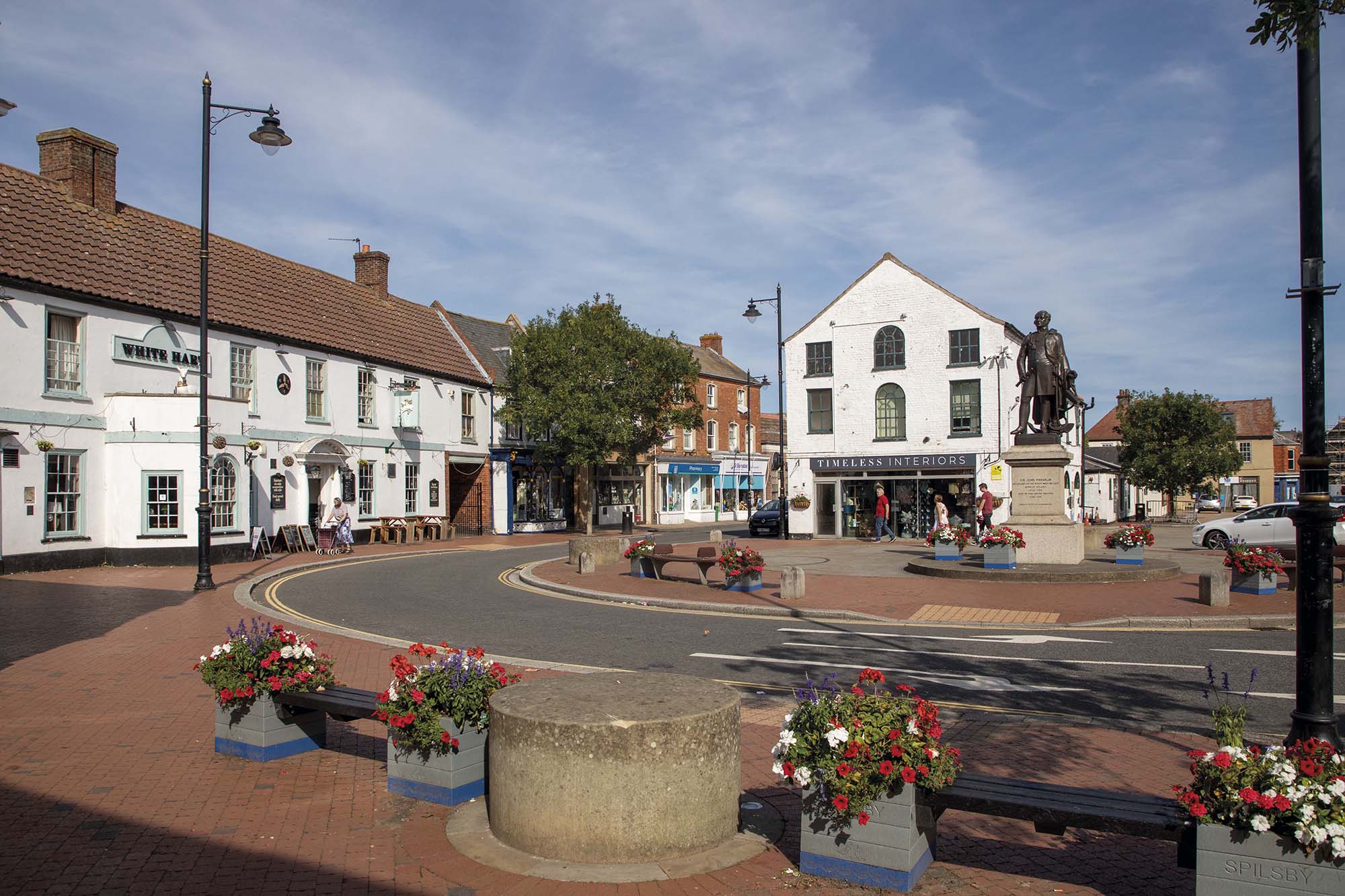
Small But Perfectly Formed is probably the best way to describe Spilsby. Certainly as far as its Mayor, Tom Kemp is concerned, the town’s size was one of the reasons he felt compelled to move back there 10 years ago. “I was raised in Boston, which is a nice town in itself, but I was keen to live somewhere a little smaller, a bit quieter. Spilsby fitted the bill perfectly!”
Tom has worked from home for a while for firms importing engineering equipment into the UK. In between, an interest in local democracy has seen him working for East Lindsey District Council and Spilsby, town council leading to his current appointment as its Mayor. He also has experience sitting on planning committees, and knows how important it is to get the balance right between allowing a community to grow whilst retaining its character. “I think there’s a real emphasis on quality of life here. Spilsby is home to about 3,000 people and life here is still centred around the very heart and soul of the town.”
“There’s a market on Monday and an unofficial half day on Tuesday. St Peter’s Church is still a thriving part of the community and when Canon Peter Coates recently retired we all held a party to thank him for being such a big part of the community.”
“That’s the beauty of Spilsby: it still feels like a close, special community even with 3,000 residents. We have all of the facilities you need from thriving independent businesses, two small supermarkets and a very well-regarded fish ‘n’ chip shop in the form of Ambridges.”
“There are plenty of community groups from local business groups and the town council to sporting groups, Scouts and Guides, and exercise groups offering dance and Zumba classes at Franklin Hall. No matter what your interest there’s definitely something for you in the community.”
Franklin Hall was build in 1899 for the 7th Spilsby Rifle Corps, formed about 35 years before. It was home to the 5th Territorial Battalion of the Lincolnshire before the group was mobilised in 1914. The Drill Hall was then used as a hospital, staffed by Red Cross volunteers. WWII would see the building used as a recreation facility for the two thousands or so service personnel based at RAF Spilsby, until the latter closed in 1958, having served as an overflow storage facility for RAF East Kirkby and being an emergency landing facility for the Cold War’s V-Bombers.
In 1964 The Drill Hall was purchased and run in a charitable trust, becoming the new town hall, and being renamed Franklin Hall in 2001 after a £1.2m refurbishment. The community facility is named after Spilsby’s most famous son, the adventurer Sir John Franklin who was born in the town in 1786 and served in the British Royal Navy fighting in the Napoleonic campaigns and against the US during the War of 1812.
Franklin then led two expeditions to the Arctic Archipelago in 1819 and 1825 before embarking on a rather less third and final expedition in 1845 where he and his crew perished from starvation, hypothermia and scurvy. In his earlier career, Franklin has also served as midshipman under Matthew Flinders. Franklin’s sister Sarah raised Emily Tennyson, who went on to marry Alfred, Lord Tennyson, which allows us to neatly segue into mention of Gunby Hall. Located just 10 minutes from Spilsby itself, it was about the home of Sir William Massingberg, built in 1700 and now Grade I listed, that Tennyson wrote the line ‘a haunt of ancient peace.’
A 100-acre expanse of parkland is surrounded by a further 1,500-acres of farmed estate. The formal gardens of Gunby Hall, though, cover about eight acres and include a Victorian walled garden and renowned for its English flowers, fruits and vegetables. There are 54 varieties of apples, planted from as far back as 1629 to 1885 as well as 21 varieties of pears and 50 types of roses in the gardens, and usually the estate hosts an Apple Day in October. Its gardens are also open throughout October.
Gunby Hall was gifted by Field Marshal Sir Archibald Montgomery-Massingberd to The National Trust in 1944 along with 1,500-acres of land, and was previously tenanted.
As it’s October and halloween is nearly upon us, we’ll also recall a ghost story attached to the estate which suggests a that the ghostly figure of a murdered servant also wanders the garden eternally waiting for his lover, the daughter (or wife) of Sir William Massingberd who was allegedly preparing to run away with the deceased… hardly the happy ending the two lovers were hoping for.
Speaking of happy endings though, the future is rather brighter for Spilsby’s Sessions House, also known as Spilsby Theatre. The place was built in 1827, and was a police station and courthouse before becoming a theatre in 1984. Having fallen into a sorry state it closed for regular use in 2015. Now though, The Spilsby Sessions House Board is hoping to return the facility to the community, and the place had been included in East Lindsey District Council’s round two Levelling Up funding. The building’s restoration is likely to cost £5.2m, and could be reopen as soon as December 2024, yielding a multi-use space for the whole community to use.
Should its transformation progress, it’ll be yet another place for Spilsby’s community to come together and celebrate life in one of Lincolnshire’s most diminutive but thriving communities.



